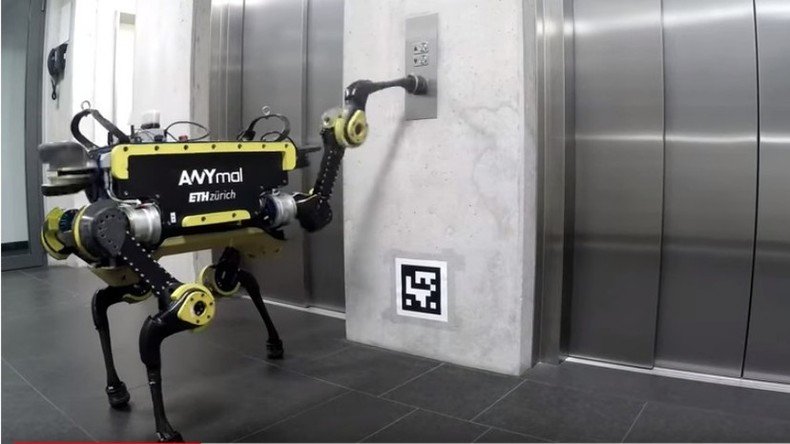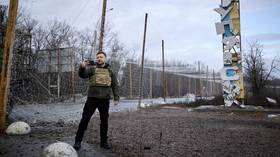Robots are getting alarmingly better at human tasks (VIDEOS)

Robots are upping their game when it comes to performing basic human tasks. However, if test footage is anything to go by, it’s still a long way before we see the doomsday AI scenario mooted by some experts.
Recent video from the Robotics Systems Lab shows its robot, ANYmal, summoning an elevator – the latest achievement from the four legged bot that has been under development for more than a year now.
Anymal uses one of its legs to reach the elevator button and then trots right in. The button is localized with help of a QR tag.
The lab is continuing research into the use of the robot’s legs for simple manipulation tasks. Previously, Anymal slowly mastered climbing stairs and traversing through wet outdoor conditions.
The Robotics and Mechatronics Center in Germany recently released a demo of its anthropomorphic DIY robot David drilling into a block of concrete.
The company has also tested robots working collaboratively with humans. In September, its humanoid robot, Rollin’ Justin, worked with an ESA astronaut in space to service a simulated Martian solar farm on Earth.
Earlier this year, Boston Dynamics showed off its parkour robot Handle, demonstrating some impressive jumps and also showing it could be put to practical use moving boxes.
READ MORE: Japanese robot enrolls in high school
While the bots are proving themselves in mechanical tasks that require precision and repetition, researchers say it could be some forty years before machines succeed in more complex challenges. A study from Oxford and Yale University, based on responses from more than 300 AI experts, said AI could automate all human tasks by 2053.














